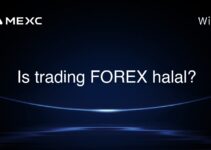Trading online can be considered halal (permissible under Islamic law) if it adheres to certain Shariah principles. The compliance depends on the nature of the traded assets and the terms and conditions of the trading platform. It is crucial for Muslim investors to ensure their online trading activities do not involve prohibited elements such as riba (usury), gharar (excessive uncertainty), and maisir (gambling).
Importance of Halal Online Trading
For Muslim investors, ensuring that their financial activities are in line with Islamic principles is not just a legal obligation but also a moral one. The growth of Islamic finance and the increasing accessibility of online trading platforms have provided Muslims with more opportunities to engage in the financial markets while adhering to their religious beliefs. This alignment helps in maintaining a clear conscience and promotes the sustainability and ethical responsibility in financial dealings.
Principles of Halal Trading
To be considered halal, online trading must exclude investments in businesses that deal with alcohol, pork products, gambling, and any form of adult entertainment. The stocks traded must not be heavily burdened by debt. According to Islamic law, the debt to equity ratio of a company should not exceed 33%. This ensures that the investment is made into assets and not financed through borrowing.
Shariah-Compliant Financial Instruments
Islamic finance has adapted to include several Shariah-compliant financial instruments that are suitable for online trading. These include Sukuk (Islamic bonds), which are structured in such a way to generate returns to investors without infringing Islamic law. Equity funds that screen their investments based on Shariah principles are also available. Moreover, certain derivatives designed for risk management, such as Islamic swaps and options, are structured to comply with Islamic precepts.
Examples and Applications
As of 2025, several platforms have emerged that cater specifically to the needs of Islamic investors. MEXC, a leading cryptocurrency exchange, has implemented a Shariah-compliant trading platform where cryptocurrencies are vetted to ensure they meet Islamic ethical standards. This includes ensuring that the cryptocurrencies themselves do not represent monetary instruments tied to usurious loans or companies dealing in non-halal products.
Another example is the development of mobile apps designed to facilitate halal investment. These apps not only ensure that the stocks are compliant with Islamic principles but also provide automated zakat (charity) calculations, another pillar of Islamic finance.
Updated Insights from 2025
The Islamic finance sector has seen significant growth, with the global Islamic financial services industry projected to reach over $3.8 trillion by 2024, according to the Islamic Financial Services Board. The integration of technology in this sector has not only expanded access but also improved transparency and compliance with Islamic laws. The use of blockchain technology, for example, has enhanced the traceability of transactions, ensuring they remain free of prohibited practices.
Relevant Data and Statistics
According to a 2025 report by Thomson Reuters, countries with significant Muslim populations such as Indonesia, Malaysia, and the Gulf Cooperation Council (GCC) states are leading in the adoption of halal online trading platforms. The report highlights that approximately 40% of Muslim investors have transitioned to exclusively using Shariah-compliant trading platforms as of 2025, up from 25% in 2020.
The demand for Islamic financial products has also influenced conventional financial institutions to offer Shariah-compliant options. This includes major banks and investment firms introducing halal trading accounts and Islamic banking services to cater to this growing market segment.
Conclusion and Key Takeaways
Online trading can be halal if it conforms to Islamic financial principles. The key is ensuring that the trading platform and the traded assets do not violate any prohibitions set forth by Shariah law. With the rise of technology and the growing demand for Islamic financial products, more options are becoming available for Muslim investors who wish to engage in online trading while adhering to their religious ethics.
Platforms like MEXC are leading the way in providing Shariah-compliant trading options, making it easier for Muslims to participate in global financial markets without compromising their religious obligations. As the market for Islamic financial services continues to expand, Muslim investors are increasingly empowered to make investments that are not only profitable but also ethically and religiously sound.
Investors looking to engage in halal online trading should conduct thorough research or consult with a Shariah advisory board to ensure compliance with Islamic laws. This approach not only ensures adherence to religious principles but also promotes ethical investment practices globally.
Join MEXC and Get up to $10,000 Bonus!



